African Penguins Dave and Rita Mae
It takes two… more African Penguins, that is! African Penguins Dave and Rita Mae hatched to parents Patrick and Owen at the National Aviary in 2023. Learn more about their journey below!
Both siblings—now sporting their juvenile sleek gray, waterproof feathers—have joined the rest of the Penguin Point colony! AND they have extra-special names…..
The older of the two siblings is a BOY named Dave. Dave was named by Aviary supporters Jacklyn and Josh Banyas as well as Megan and Kevin Wolfe in honor of Jacklyn and Megan’s dad, Dave McCluskey.
The younger is a sweet girl named Rita Mae. Rita Mae was named by Aviary supporters Michael and Lisa Hart in loving memory of their aunt, Rita Mae Caste.
To commemorate the naming as well as the duo’s official entrance to the Penguin Point habitat, we invited the supporters to unveil their names before the daily 10:30 am feeding (an activity that is included with General Admission!).
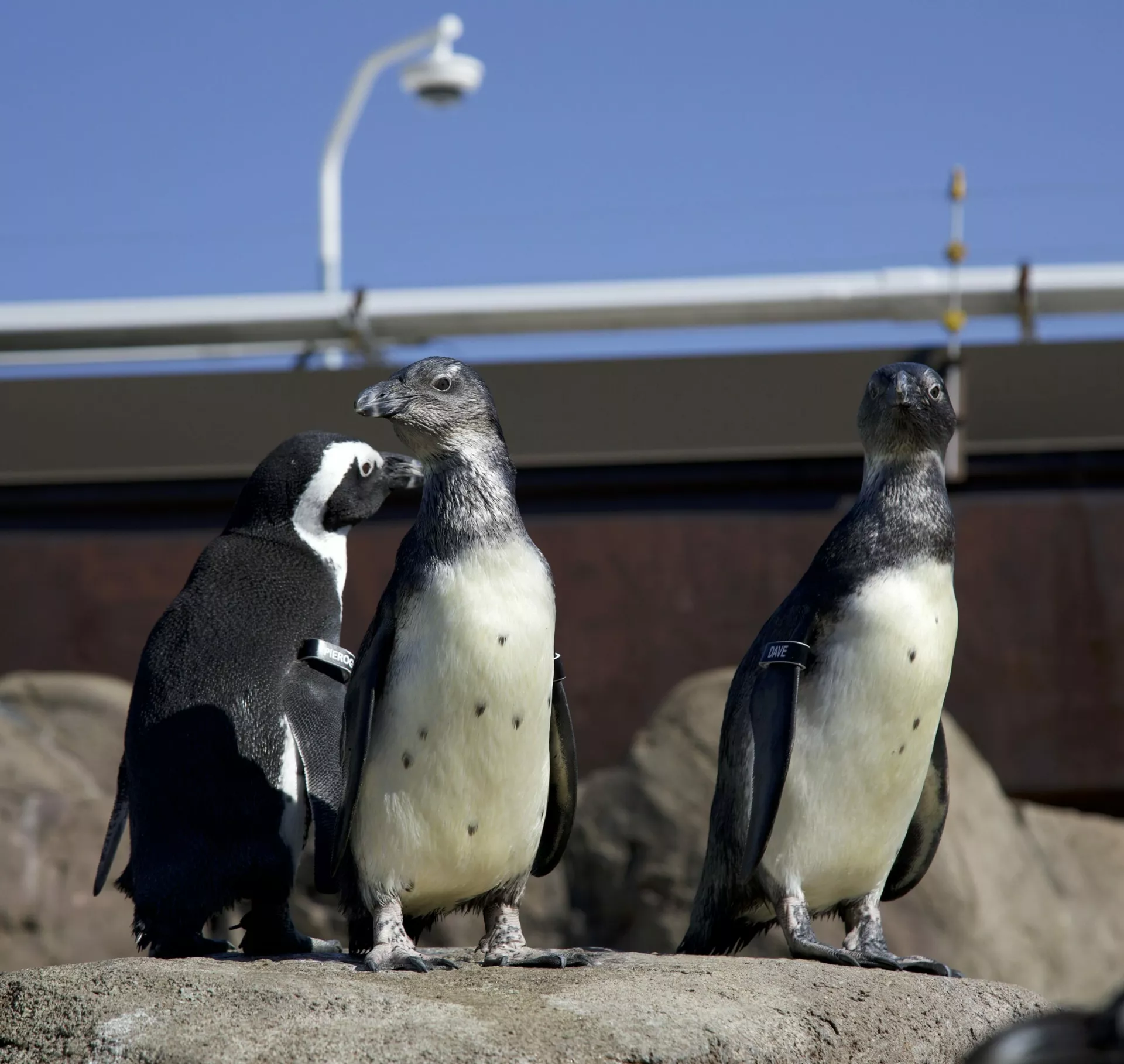
Gender Reveal
To commemorate our “gender reveal,” we involved our resident artist, Valentino, the Linnaeus Two-toed Sloth! Using his natural ability to grasp and move objects, he painted two canvases of African Penguin silhouettes using animal-safe paint and stencils.
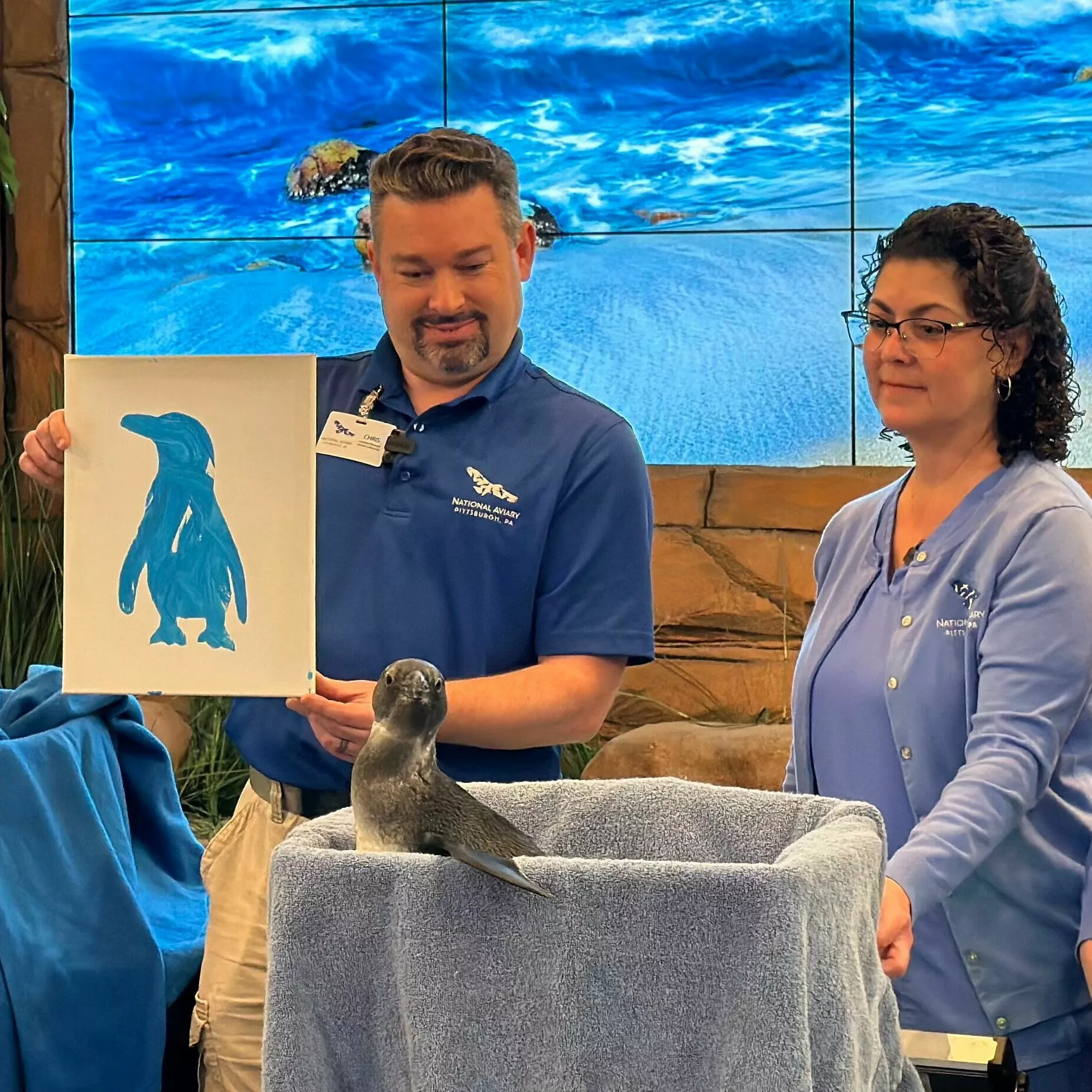
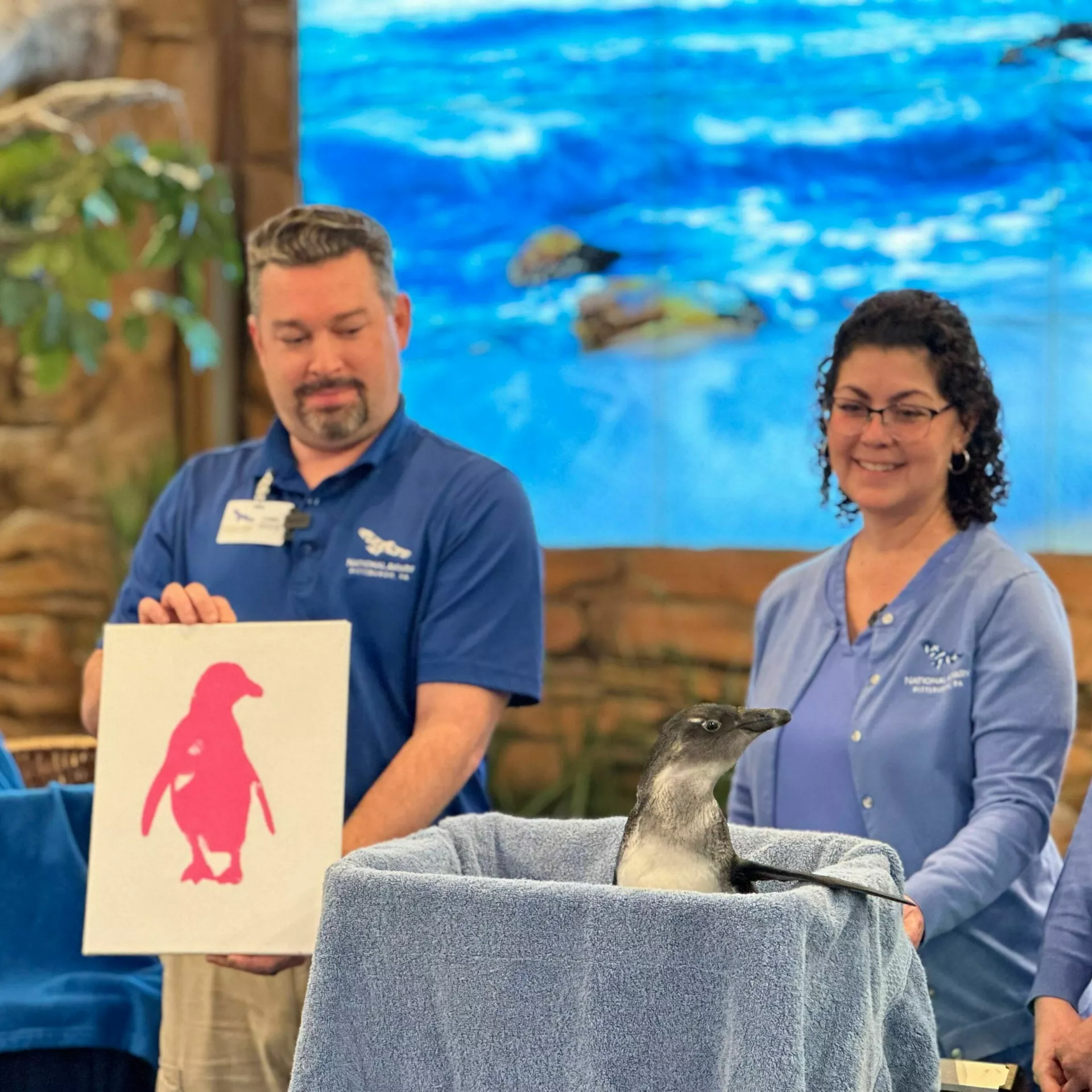
During the reveal, the African Penguin duo completed a check-up exam and weigh-in. On average, African Penguin chicks take about three months to grow into their adult size. Both are extremely healthy and developing as their care team expects them to. But it’s not just about their physical health; we are learning more about these dynamic birds’ personalities.
“In addition to seeing positive developments in their health and growth, the sibling pair are already displaying their unique personalities! Both juveniles are naturally inquisitive, out-going, and love exploring their environment. They’re learning the essential skills to grow up and behave very similar to their parents (Patrick and Owen),” says Dr. Pilar Fish, Senior Director, Zoological Advancement & Avian Medicine.
As for what’s next for this duo?
“Our amazing veterinary and animal care staff at the National Aviary have been instrumental in ensuring the fantastic growth and development we continue to witness with the sibling pair,” says Kurt Hundgen, Senior Director of Animal Care and Conservation Programs.
They now live alongside our African Penguin flock in Penguin Point.
Exciting Hatchlings for a Critically Endangered Species at the National Aviary
In 2022, the National Aviary announced the hatching of Pierogi, an exciting new addition to the Penguin Point African Penguin colony. Just a little over a year later, we are thrilled to share that Pierogi’s biological parents, Patrick and her mate, Owen, hatched two additional African Penguin chicks! Pierogi and his siblings mark an additional spark of hope for a species that is increasingly experiencing population declines in the wild.
Because of the critical importance of each and every hatching for this Critically Endangered species, Pierogi was raised by Patrick and Owen’s colony mates, Sidney and Bette, who have so far fledged 10 chicks at the National Aviary. This time around, Patrick and Owen incubated their two eggs inside of a Penguin Point nesting cave for about a month and the chicks hatched on November 5 and 9. An excellent genetic match, they are already showing strong signs of being dedicated penguin parents. The National Aviary’s expert animal care team has been observing their feeding, brooding, and preening behaviors and can see that these chicks are growing and developing well in their care.
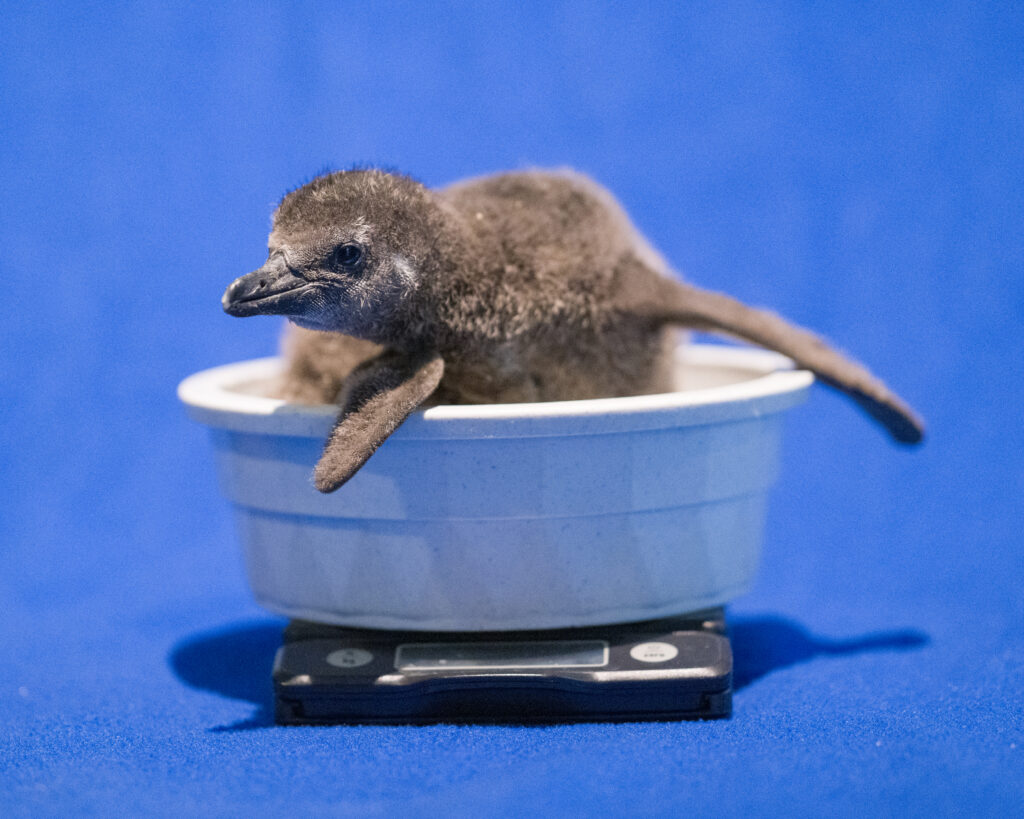
Healthy Development as Chicks!
This adorable duo has grown quickly, with regular weigh-ins showing both chicks are thriving!
First Weigh-in:
- Hatchling One: 211g (7.44 oz.): roughly the size of an avocado.
- Hatchling Two: 159g (5.60 oz.): the size of a large lemon.
Second Weigh-in: Both DOUBLED in Weight!
- Hatchling One: 520g, (18.34 oz.): larger than a standard NFL football.
- Hatchling Two: 432g, (15.24 oz.): the size of an MLB baseball.
Third Weigh-in: Another Big Jump!
- Hatchling One: 1035g (36.5 oz.): a little bigger than a cantaloupe!
- Hatchling Two: 900g (31.7 oz.): about the size of a bag of sugar!
Fourth Weigh-in: Both QUADRUPLED in Weight!
- Hatchling One: 1686g (58.9 oz.): about the same weight as a two-liter soda bottle.
- Hatchling Two: 1461g (51.6 oz.): a little bigger than the size of an average adult human brain.
Fifth Weigh-in: Both are Adult-sized!
- Hatchling One: 3345g (118 oz.): a little heavier than the weight of a standard brick.
- Hatchling Two: 2805g (98.9 oz.): a little lighter than the weight of a standard brick.
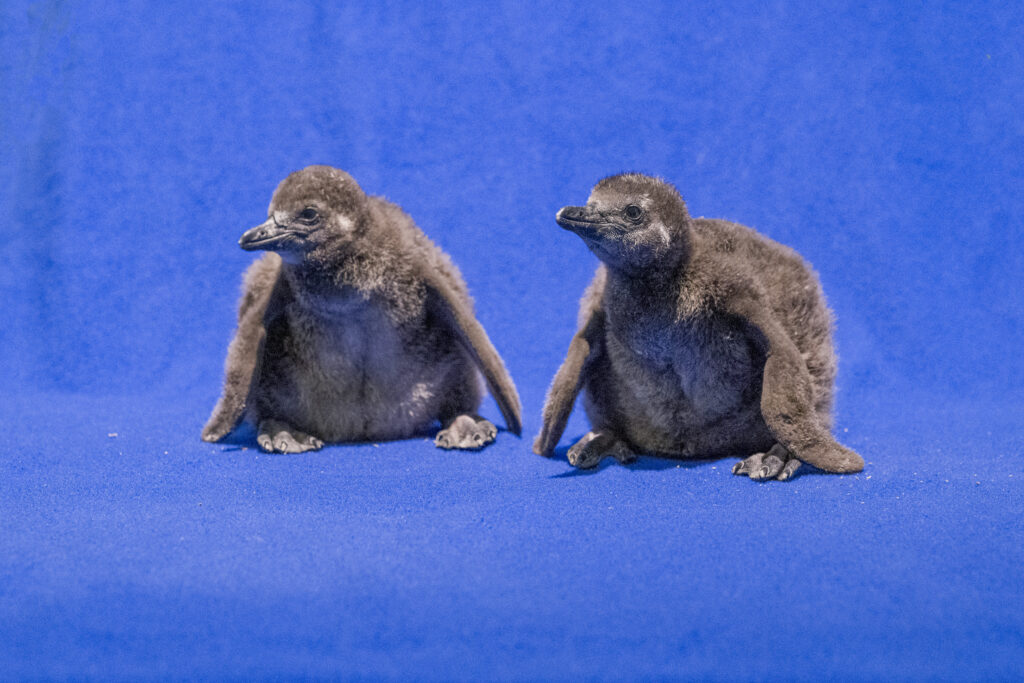
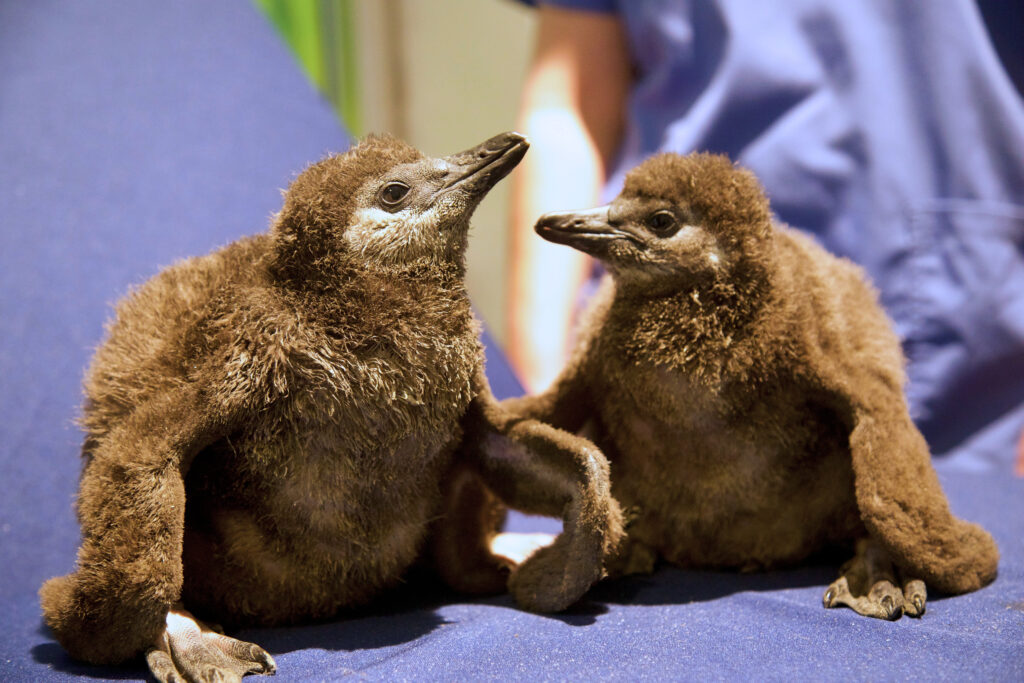
African Penguins reach their adult size at about three months old. They generally grow to be about 18 inches tall and can weigh up to 10 pounds. African Penguins are monomorphic, meaning males and females are visually similar; the Aviary veterinary team will conduct a DNA feather test on both chicks to determine their sex once they reach adult size.
Importance of this Hatching
The National Aviary is the leader of the AZA: Saving Animals From Extinction (SAFE) program for African Penguins. The program is coordinated by National Aviary Senior Conservation Scientist Dr. Patty McGill, who works with colleagues at the Aviary and around the world to identify and address the short-term and long-term challenges plaguing the species. Due to the overharvesting of fish, disasters like oil spills, climate change, and lack of appropriate places for existing penguins to nest, it is predicted that African Penguins could be functionally extinct in the wilds of Southern Africa by 2035.
How We Help
Today, less than 3% of the historic African Penguin population exists, with only about 9,000 pairs remaining in the wild. The ever-growing African Penguin colony that resides at the Aviary has allowed us to implement new and innovative ways to promote our conversation efforts, such as making use of artificial nesting burrows onsite, offering additional nesting opportunities to our colony. With this research in hand, the National Aviary, in collaboration with partner organizations, has been able to provide 1,500 artificial nesting burrows throughout six Southwest African colonies.
The National Aviary conducts international conservation work here and in the field. Learn more here.
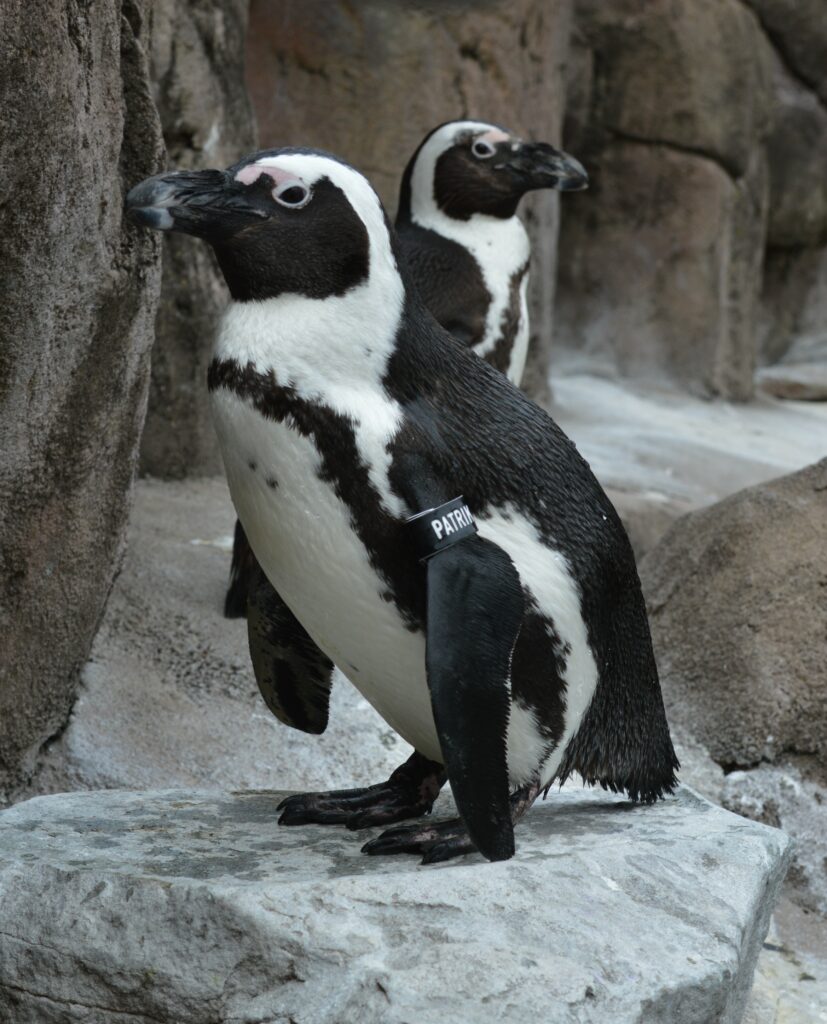
The National Aviary’s efforts to conserve the African Penguin and other species are made possible with the support of people like you. All donations received bring us one step closer to completing our conservation goals.
